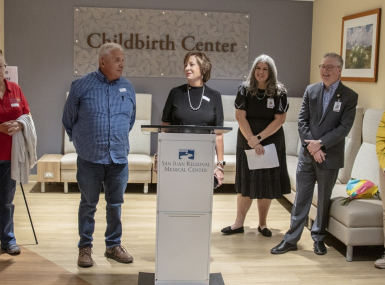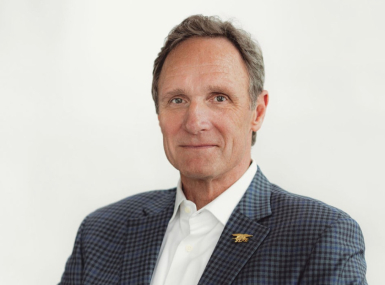High Performance Leadership Academy changes game for human rights advocate

Key Takeaways
When Spencer Chiimbwe moved to South Africa from his native Zambia in 2001, he was living practically on the opposite side of the world from Rockland County, N.Y.
But 21 years later, after living in a country just seven years past the end of apartheid, he became the county’s human rights commissioner, bringing with him a career’s worth of human rights work that just needed a little something extra to take him over the top.
Chimbiwe’s penultimate point in his career — that has spanned international development, academia, service to both a member of Congress and the state Senate — was in the county’s American Rescue Plan office, helping allocate COVID relief funding.
“You kind of wonder how we nabbed this guy,” County Executive Ed Day said when announcing Chiimbwe’s nomination in November 2022.
Learn more
As human rights commissioner, Chiimbwe will lead investigations into discriminatory practices related to housing, employment, race, creed, age, national origin, marital status, sexual orientation, gender or disability.
“I have been inspired by the social justice conversation that spoke to my conflict and governance work experience from around the world,” he said during his nomination.
“I have never been so sure of the power and vision for humanity in human rights work than now.”
Despite that broad resume, Chiimbwe said what made the difference in finding his role with the county was his work in NACo’s High Performance Leadership Academy. That, he said, is what made him pursue a leadership role.
“The academy brought leadership to me as a possibility within the country framework,” he said.
“I thought it was only for people in high level management,” but he saw the opportunity to make the jump.
He considered himself more of a public policy practitioner until a colleague suggested he take the 12-week online course.
“It’s not that I doubted my confidence, but I hadn’t embraced my empowerment,” he said.
He did when it was time for the county Legislature to approve his nomination, though. It was there that he made the leap from government analyst to leader.
“When you know your material, you’re judged by how you engage with the other leaders and how you talk,” he said. “I was able to stand before the Legislature and meet them with calmness and confidence.”
Despite his career experiences, which include work as regional coordinator for nine South African counties, work with the organization Action for Conflict Transformation, plus his work with the ACTION Support Center and the United African Congress, he had to reframe that experience.
“[The academy] has given me the cultural competence to understand where people are coming from and it has given me the humility to unlearn some of the things that I have learned,” he said.
“Yes, I have a global frame of reference but contextualizing my global frame of reference into a local setting, that’s where my skills will come in.”
Coming to South Africa in 2001, he saw a country still figuring out its social balance, but knew relitigating the past would not necessarily lead to a better future.
“You could feel the social debris of apartheid,” he said. “I worked with these friends, I sat in those forums, I listened to the people that participated and the Truth and the Reconciliation Commission. I’m hopeful that every generation has its own challenges, and the challenge is for them to collectively come together and say ‘How can we address the challenges of our time?’ We’re not going to tell you to address the challenges of 1994, focus on the challenges of 2023.”
Chimbwe’s approach to the commission will stress collective ownership of human rights work, a proactive and consultative approach to mobilizing resources to turn ideas into action, while finding unity in diversity.
“Consultative approaches are a remedy to long-lasting solutions to human rights or any other undertaking,” he said. “Government in many ways can seem inaccessible and unapproachable, but my vision is to make human rights work be as visible and accessible in the county.”
He knows he’ll get some pushback and is prepared for people to not understand what he’s saying, and admits his accent may be part of that.
But it may also come from his message diversifying residents’ understanding and inclusion of human rights.
“You have to be you, have to be ready to have this skin in the game and understand that people are going to push back against you and people are going to tell you what you don’t want to hear,” he said.
“Human rights do not belong to one group only,” he noted.
“We are wrong to say if we think, if we talk about human rights, we think just Black or Latino. We shouldn’t be dismissive of other groups that have got human rights concerns because it’s been dominated by only specific groups. We have to ‘outstretch the market’ and let everyone embrace human rights, that’s what it means.”
Attachments
Related News

Now I know I can adapt my communication style
San Juan County, N.M. Commissioner Terri Fortner spent her career working with people one-on-one, but she overcame hangups about online communication when the pandemic forced her onto video calls when she first took office.

County service meets a veteran’s need for purpose in Spotsylvania County, Virginia
After Drew Mullins transitioned from a high-performance lifestyle in the military, he found the environment and purpose he sought when he took office in his county.
Now I know that solid waste is complicated
Custer County, Idaho Commissioner Will Naillon says solid waste removal is "one of the things that people often take for granted until it’s their job to make sure it happens... that’s the story of being a county commissioner."
